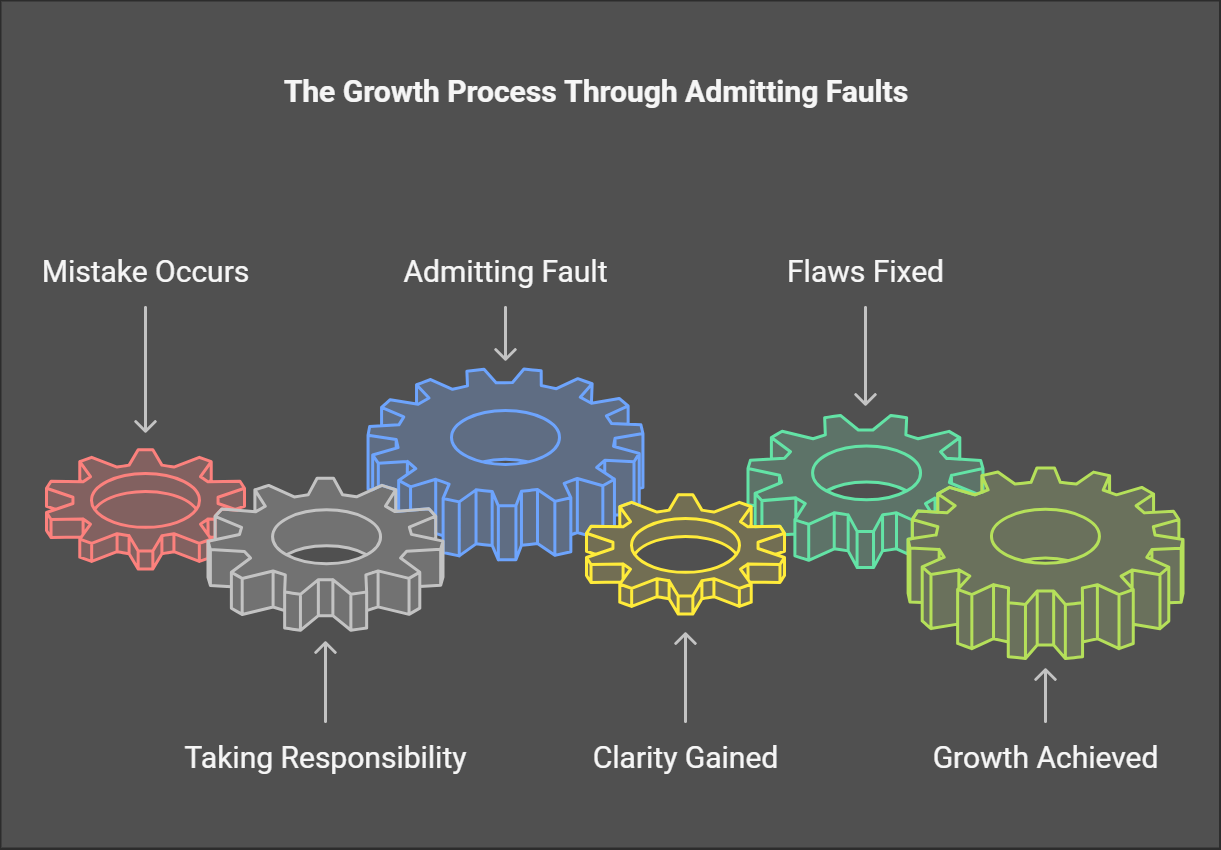Admitting Mistakes is Hard
How hard is it to say "I'm wrong" or "I made a mistake"? Sometimes it feels that admitting our mistakes is even worse than the mistake itself.
Perhaps we have failed to notice that we made a mistake, or that we hope we can fix it before anyone else can see, but when we admit it we turn in into reality, it becomes common knowledge.
All of our faults, our imperfection and our "ugly sides" are now publicly displayed for everyone to see. It feels like an indication that we have failed as people, that not only our actions, but our identity is hurt, lacking, weak.
I was (and somewhat still am) afraid of admitting I was wrong. Whenever I get criticized, I immediately go into defensive mode. I deny, I redirect, I rage, because I feel that to listen and agree is proof of my low worth. Although, deep inside, I now that these reactions are strong precisely because the feedback is true, that I have failed, as if by denying it I can change reality.
The Hidden Cost of Denial
While denying our mistakes makes us feel better on the short term, it's harmful in the long run.
We prioritize our Ego over our growth.
It means that instead of addressing these mistakes head on, we ignore them, which is a sure recipe of repeating them. It gets worse if on top of denying them we blame someone or something else, because this hurts not just our ability to deal with these specific mistakes, but also cultivates a mindset of helplessness, as if there was nothing you could have done differently, as if we are always right and perfect, and it is others who set us back.
Ironically, by ignoring our mistakes we turn them from momentary errors to a permanent stain on our identity. We hide them because we fear we are truly worthless, and incompetent. We give them power over our lives, over our identity.
Removing their power is through taking ownership and accountability, by admitting them we show others that we are honest, that we can do better, that we wish to be better, that we don't let these moments define us, and that we take responsibility over our actions, our behavior, and not dismiss it or blame others when it's convenient.
Identifying with our mistakes is the best way to overcome them.
Actionable Tips: How to Embrace Your Mistakes
- Pause & Reflect – When faced with criticism, instead of reacting defensively, take a moment to listen. Recognize that they are trying to help you, that they criticize the action, not your identity.
- Reframe Failure – See mistakes as learning opportunities, not personal failures. Mistakes are valuable lessons, ones that we can learn only by examining them.
- Ask for Feedback – Don't run away from feedback, embrace it. Constant feedback has preventative qualities, providing insights that will reduce the number and the degree of our mistakes.
- Be future oriented – Analyze your mistakes in a forward looking way, focus on what you can do better next time.
The Takeaway: The Power of Owning Your Mistakes
Saying "I was wrong" is a liberating experience. By taking ownership of our mistakes, we are able to overcome them. There is nothing to be ashamed of, it is a proof of character, rather than a stain on one, to admit that we were wrong.
As with failures in general, they are the stepping stones for our improvement, we try, we fail, we learn, to try to live without error is like trying to be the best painter in the world without ever holding a brush. Improving and failing are two sides of the same coin.
So be proud, that you had the courage to try, the courage to step out of your comfort zone, and the courage to own your mistakes.
Ask Yourself
- When was the last time I admitted I was wrong?
- How do I feel about myself when I make a mistake?
- How do I handle mistakes? Is there a learning process afterwards?
